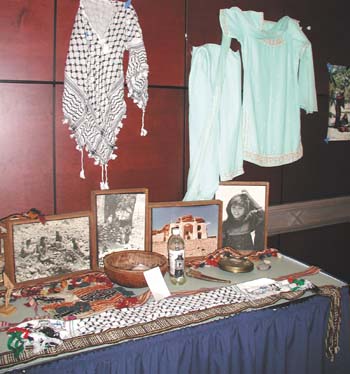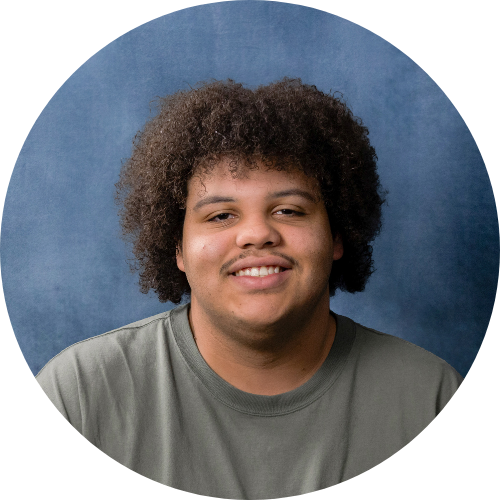Effects of War

Image: Effects of War:Photo by Deseret Palmer/State Hornet:
March 13, 2002
A mock refugee camp in the Library Quad last week was deemed successful by organizers of the “Displaced by War” demonstrations. The events were designed to heighten student awareness of the millions of refugees in Afghanistan and the Middle East.
Two months of preparation culminated in last week?s life-sized display of refugee conditions that were markedly multi-ethnic and lacked the tension of some previous campus events about the Middle East.
“It was neat to see different ethnicities and cultures working together,” said Shakira Bayanzay, who helped coordinate the events.
Tuesday?s display recreated refugee camps like those scattered throughout the Middle East.
Tables were dedicated to specific countries ? including Chechnya, Iraq and Afghanistan ? with large refugee populations. Literature was available at each table, and volunteers answered questions and talked to passers-by.
The purpose of the three-day event was to tell Americans about the issues facing those in other countries, said sophomore Shakila Reshton, whose parents immigrated from Khandar, Afghanistan before she was born.
“The basic concept is that people are not seeing the whole story,” Reshton said.
Coordinators wondered if they would face controversy. Volunteers distributed fliers the week before, and Reshton said some people tore up the filers, saying they didn?t want them. But, with a few exceptions, the events were well received.
“I saw the fliers up and made a special effort to walk by the area,” said junior Mike Sutcliffe, an English major. “I?m glad to see the information.”
The exceptions were a few men who stopped by the display, Bayanzay said. Two of them were “really rude,” she said, but one of the individuals attended that night?s lecture to learn more.
“His view totally changed,” Bayanzay said.
The demonstrations came two weeks after a speech entitled “Why they hate us: What the Arab Press says about the U.S. and Israel” sparked controversy. Muslim students who attended said they tried to ask questions after CSU Chico Jewish studies professor Samuel Edelman finished his lecture, but Edelman refused to acknowledge them.
“He wouldn?t give a chance to Muslim and Arab students,” said senior computer engineering major Youssef Reggad.
Edelman defended himself by saying that he was “very happy to answer questions, not monologues,” and Sacramento State professor Robert Platzner suggested that perhaps Edelman?s bifocals made it difficult for him to see those audience members with hands raised.
Muslim Students? Association President Mohamed Hamada said some Muslim students had their hands raised for the duration of the question and answer time but were never called on.
“He wasn?t picking [Muslims] on purpose, and it was very insulting and unprofessional,” Hamada said.
Leonard Valdez, director of the Multi-Cultural Center agreed.
“The Muslim students were very polite, they took notes and raised their hands, and they were not called on,” Valdez said.
Two weeks later, events were calm and people appeared to be interested in the mock refugee camp displayed on the Quad.
Small, handmade tents were constructed, and wind caused some of them to partially collapse before the display ended at 2 p.m.
However, Bayanzay pointed out that the tents were actually nicer than the ones found in refugee camps.
Signs reading “Racism must go” and “No Justice, No Peace” were displayed on the Quad, and one large sign read, “14 million refugees. Up to 25 million internally displaced persons live in shelters throughout the world.”
Despite the rain, Bayanzay was pleased with the results of the four-day demonstrations and events.
“The good response makes me want to do more events like this,” Bayanzay said.
Send comments, questions, or concerns to [email protected]
For questions or information regarding thesite, please contact [email protected]





























































































































